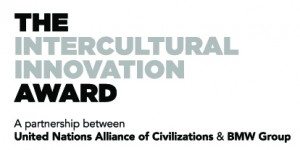Antonio is a globally educated man seeking to permanently re-locate to Australia with his wife and young daughter. A qualified architect, he spent many years working in Barcelona and nearly a decade in New York. When asked about his experiences here he seemed reluctant to answer. “Well, I have had a lot of comments about my accent; people not knowing where I come from or asking me to speak clearer English. I really can’t help my accent. My mother is Catalan. It is hard to lose”.
Antonio’s positive attitude and love for this country is clear. He considers his time in Australia as having been easy, despite facing very open racial discrimination from potential employers.
He came to work as a consultant on a large Architectural project. His visa was renewed three times over and he started to feel really insecure about his place in the company and in Australia. His employer said they would be unable to sponsor him even though he had been integral to their project. He sought advice from an immigration lawyer and was told that Australia did not need architects. The lawyer suggested he train as a hairdresser and re-seek entry.
Instead, Antonio vigorously pursued other roles. He thought he had a fantastic opportunity with a potential new employer, after a very engaging phone interview and positive feedback on his CV. When he attended the interview, he said the woman’s face dropped when she saw him. She seemed to have lost all enthusiasm. He assumed “…it must be because I am middle eastern and she had imagined someone completely different.” Antonio had used just his mother’s family name and not his father’s Arabic family name. This was not a ‘strategic’ decision. It is an integral part of Catalan culture to place one’s mother’s surname before the father’s. Additionally, he did not want to put four names on his application as he noticed most people just use a first and surname in Australia. When he asked her why she was not conducting a more thorough interview with him, the interviewer apologised “Sorry. Your skills are what we need but we don’t employ ‘strangers’. “Admittedly, I was shocked at this response; even that someone would use this sort of terminology …or insult.”
Antonio advised the woman she was grossly ignorant and that he wanted to work in an environment where people are respected and treated like human beings.
“I just turned my back on those people. That is why I love New York and stayed for so long. People really just see you as a human being and don’t even look at race.”
Interview by Alison Wilson.


